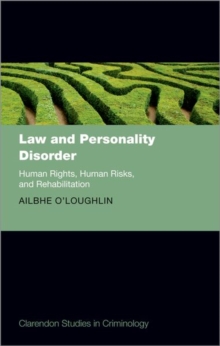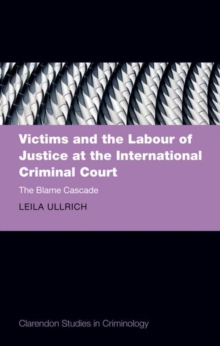
Paramilitary Imprisonment in Northern Ireland : Resistance, Management, and Release Hardback
by Kieran (Reader in Law, Reader in Law, The Queen's University, Belfast) McEvoy
Part of the Clarendon Studies in Criminology series
Hardback
Description
This book offers a unique analysis of paramilitary imprisonment in Northern Ireland.
The central focus of the book is the struggle between inmates and the state concerning the prisoners' assertion of their status as political prisoners.
Drawing upon interviews with former Republican and Loyalist prisoners as well as prison managers and staff, this book locates that experience within the broader theoretical literature on imprisonment.
Four forms of prison resistance are examined by which prisoners asserted their political status.
Dirty protest and hunger strike are characterised as resistance through self sacrifice.
Violence, destruction and intimidation are examined as prison resistance becoming an extension of armed struggle.
Escape is analysed as a form of resistance through ridicule. And finally law is considered as instrumental resistance and a dialogical process with a range of audiences.
The book then considers a range of prison management adopted by the prison authorities. `Reactive Containment' is described as a military-led model of management which incapacitated the terrorist `enemy' but acknowledged the political character of the inmates. `Criminalization' is viewed as a strategy designed to deny any practical or symbolic acceptance of the political motivation of prisoners. `Managerialism', it is argued, encompasses a series of scientific discourses to rationalise conflicting interactions with prisoners, from pragmatic accommodations to a dogged determination to prevent further recognition of de facto political status.
The book concludes with an analysis of the early release of paramilitary prisoners and the conflict resolution process and some reflections on political prisons as spaces both during and after a political conflict.
Information
-
Out of stock
- Format:Hardback
- Pages:440 pages
- Publisher:Oxford University Press
- Publication Date:04/10/2001
- Category:
- ISBN:9780198299073
Information
-
Out of stock
- Format:Hardback
- Pages:440 pages
- Publisher:Oxford University Press
- Publication Date:04/10/2001
- Category:
- ISBN:9780198299073










